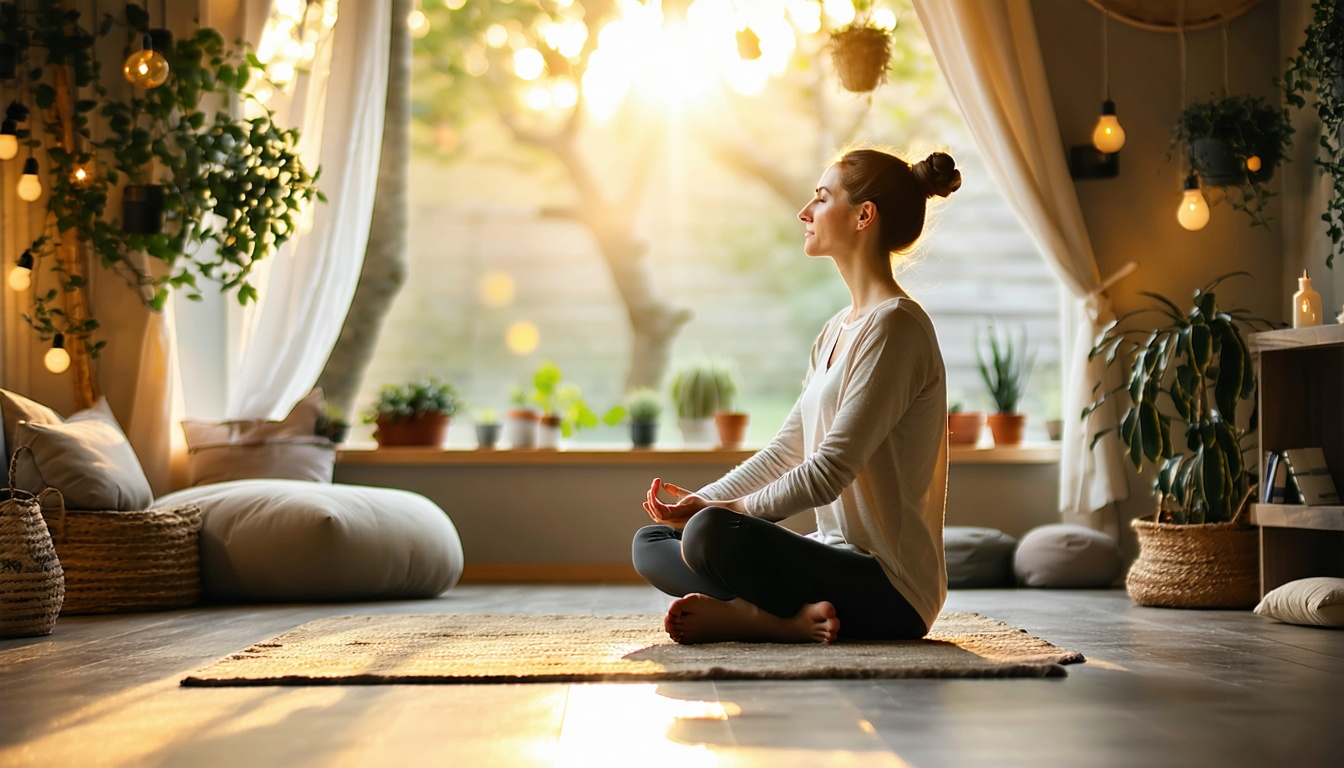Understanding Anxiety Disorders
Overview of Anxiety Disorders
Anxiety disorders are among the most prevalent mental health conditions, impacting individuals of all ages, including children, adolescents, and adults. Research indicates that women are approximately twice as likely as men to experience anxiety disorders (Cleveland Clinic). These conditions can significantly interfere with everyday activities, making it challenging for individuals to function normally. Thankfully, effective anxiety treatment options are available, including medications and psychotherapy options.
Common Types of Anxiety Disorders
Anxiety disorders can be classified into several types, each characterized by specific symptoms and triggers. Understanding the various types is essential for seeking the appropriate support and treatment. Below are some common types of anxiety disorders:
| Anxiety Disorder | Description |
|---|---|
| Generalized Anxiety Disorder (GAD) | Characterized by excessive worry about various aspects of daily life, leading to restlessness and physical symptoms. |
| Panic Disorder | Involves recurrent panic attacks—sudden episodes of intense fear that trigger severe physical reactions. |
| Social Anxiety Disorder | Marked by excessive fear or anxiety in social situations, leading to avoidance behaviors. |
| Specific Phobias | Involves intense fear of specific objects or situations, causing individuals to go to great lengths to avoid them. |
| Obsessive-Compulsive Disorder (OCD) | Characterized by recurrent, unwanted thoughts (obsessions) and/or repetitive behaviors (compulsions) that the individual feels driven to perform. |
| Post-Traumatic Stress Disorder (PTSD) | Develops after experiencing or witnessing a traumatic event, leading to flashbacks, severe anxiety, and avoidance of reminders of the trauma. |
Approximately 19% of the general population in the United States is diagnosed with an anxiety disorder, highlighting the need for effective strategies to manage these conditions. If you or a loved one are seeking resources for anxiety treatment, consider exploring comprehensive options that can help manage symptoms and enhance daily living. For additional support and treatment avenues, explore services like substance use disorder treatment, relapse prevention programs, and support services for the homeless.
Treatment Options for Anxiety
When it comes to tackling anxiety, it’s essential to explore a range of treatment options that can truly empower you or a loved one. Below are several effective methods, including psychotherapy, medication, and lifestyle changes.
Psychotherapy for Anxiety
Psychotherapy, particularly Cognitive Behavioral Therapy (CBT), is a widely accepted treatment for anxiety disorders. CBT focuses on identifying and changing negative thought patterns and behaviors associated with anxiety. Research shows that this type of therapy can significantly reduce symptoms and enhance coping strategies.
| Therapy Type | Focus Area | Duration |
|---|---|---|
| CBT | Cognitive restructuring | Typically 12-20 sessions |
| Exposure Therapy | Gradual exposure to fears | Varies based on individual response |
| Interpersonal Therapy (IPT) | Relationships and social functioning | About 12-16 sessions |
Medications for Anxiety
In addition to psychotherapy, various medications can help manage anxiety. Understanding these options makes it easier to choose the right approach for you or your loved one.
| Medication Class | Example | Duration of Treatment |
|---|---|---|
| SSRIs | Sertraline, Fluoxetine | Long-term |
| Benzodiazepines | Lorazepam, Diazepam | Short-term use, as needed |
| Buspirone | Buspirone | Long-term or ongoing |
These medications can be effective in alleviating symptoms, but it’s crucial to consult a healthcare provider for a personalized approach.
Lifestyle Changes for Managing Anxiety
Making lifestyle changes can also play a significant role in managing anxiety effectively. Here are some recommendations that could enhance your treatment plan:
| Lifestyle Change | Benefits |
|---|---|
| Exercise | Reduces stress and tension, boosts mood (Taking Charge) |
| Sleep | Improves mental clarity and emotional resilience |
| Mindfulness and Meditation | Helps calm the mind and improve focus |
Incorporating these lifestyle changes alongside other treatment options can empower you to manage anxiety more effectively. For those looking for comprehensive support in Las Vegas, exploring resources like addiction treatment or dual diagnosis treatment can also be beneficial in tackling co-occurring issues that may contribute to anxiety.
Psychotherapy for Anxiety
Psychotherapy is a key component in the treatment of anxiety disorders. It helps individuals understand and manage their symptoms while empowering them with the skills needed to cope with anxiety in daily life. Here are three prominent types of psychotherapy used to treat anxiety.
Cognitive Behavioral Therapy (CBT)
Cognitive Behavioral Therapy (CBT) is widely recognized as the most effective form of psychotherapy for anxiety disorders. This approach focuses on teaching you specific skills aimed at improving your symptoms and gradually facilitating a return to activities you may have been avoiding. By identifying and challenging negative thought patterns, CBT proves effective in reducing anxiety levels (Mayo Clinic).
CBT is structured and typically involves a set number of sessions, making it a time-efficient choice for many individuals. Through this therapy, you will learn how to manage anxiety in a practical way, empowering you to take the necessary steps toward recovery.
Exposure Therapy
Exposure Therapy is a specific component of CBT that involves gradually facing your anxiety triggers. This process aims to build your confidence and resilience in managing anxiety symptoms and situations that provoke fear. Through repeated exposure in a controlled manner, you can reduce the intensity of your anxiety response and develop coping strategies for fear-inducing encounters.
This method of treatment has been shown to be effective for many anxiety-related issues, including phobias, panic disorder, and obsessive-compulsive disorder. By confronting your fears in a safe environment, you can learn that your anxious thoughts do not have to dictate your actions.
Interpersonal Therapy (IPT)
Interpersonal Therapy (IPT) focuses primarily on improving interpersonal relationships and communication skills, which can significantly impact anxiety levels. This therapy is based on the understanding that your relationships with others can contribute to feelings of anxiety. IPT seeks to resolve interpersonal conflicts that may exacerbate anxiety symptoms.
This approach typically encompasses a shorter time frame, making it a practical option for those looking to address anxiety stemming from specific social situations or relationship issues. By enhancing your interpersonal skills, IPT can lead to improved emotional health and reduced anxiety.
Through these psychotherapy options, you can find the right approach to treat your anxiety symptoms effectively. Utilizing therapies like addiction counseling or therapies tailored for dual diagnosis can add additional layers of support, especially if you or a loved one are grappling with dual challenges of addiction and mental health. Consider reaching out for resources or programs that emphasize therapy as a foundational aspect of recovery.
Medications for Anxiety
When considering options for anxiety treatment, various medications can significantly alleviate symptoms. This section outlines three common types of medications used to treat anxiety: SSRIs, benzodiazepines, and buspirone.
SSRIs for Anxiety
Selective Serotonin Reuptake Inhibitors (SSRIs) are often prescribed as the first-line treatment for anxiety disorders. Medications like escitalopram (Lexapro), fluoxetine (Prozac), and sertraline (Zoloft) work by increasing serotonin levels in the brain, which help to elevate mood and reduce anxiety. These medications typically require a few weeks (4-6 weeks) to manifest noticeable effects.
| SSRI Medication | Common Dosage Range | Side Effects |
|---|---|---|
| Escitalopram (Lexapro) | 10-20 mg | Nausea, insomnia, sexual dysfunction |
| Fluoxetine (Prozac) | 20-80 mg | Headaches, nervousness, or anxiety |
| Sertraline (Zoloft) | 50-200 mg | Drowsiness, dry mouth, gastrointestinal issues |
SSRIs can help improve overall functioning and quality of life for individuals suffering from anxiety disorders.
Benzodiazepines for Anxiety
Benzodiazepines, such as alprazolam (Xanax), diazepam (Valium), and lorazepam (Ativan), are effective for short-term relief of anxiety symptoms. They work by relaxing muscles and calming the mind, but should be used with caution due to their potential for dependency and side effects like drowsiness and memory impairment.
| Benzodiazepine Medication | Common Dosage Range | Side Effects |
|---|---|---|
| Alprazolam (Xanax) | 0.25-4 mg | Drowsiness, dizziness, dry mouth |
| Diazepam (Valium) | 2-10 mg | Fatigue, confusion, lightheadedness |
| Lorazepam (Ativan) | 0.5-10 mg | Dizziness, weakness, sedation |
Despite their effectiveness, benzodiazepines are generally recommended for short-term use (Healthline), especially given that approximately 19% of the general population in the United States has a diagnosed anxiety disorder (Therapy Group of DC).
Buspirone for Anxiety
Buspirone is another treatment option for anxiety disorders, distinct from SSRIs and benzodiazepines. While it can take several weeks to achieve its full effect, buspirone has a lower risk of side effects and dependency. It works by altering brain chemicals related to mood, specifically targeting serotonin levels.
| Buspirone Medication | Common Dosage Range | Side Effects |
|---|---|---|
| Buspirone | 15-60 mg | Dizziness, nausea, headache |
Buspirone may not be effective for all types of anxiety disorders, but it offers a slower-acting alternative for those seeking anxiety relief.
Consider discussing these options with your healthcare provider to find the best anxiety treatment solution for you or your loved one. For additional resources, you can explore topics such as addiction treatment and long term recovery support.
Lifestyle Changes for Managing Anxiety
Making certain lifestyle changes can significantly impact your ability to manage anxiety effectively. Incorporating exercise, improving sleep quality, and practicing mindfulness and meditation are all beneficial strategies.
Exercise and Anxiety
Engaging in regular physical activity is one of the most effective ways to alleviate anxiety. Exercise triggers the release of endorphins, which are natural hormones that enhance mood and decrease anxiety symptoms. Activities such as walking, yoga, tai chi, and qigong are particularly helpful. Just 30 minutes of walking each day can reduce the risk of developing major anxiety and depression Taking Charge.
| Type of Exercise | Duration | Benefits |
|---|---|---|
| Walking | 30 minutes | Reduces anxiety and depression risk |
| Yoga | Varies | Improves flexibility, reduces stress |
| Tai Chi | Varies | Enhances balance and mental clarity |
| Qigong | Varies | Combines movement with meditation |
Incorporating these activities into your routine can help create a more balanced state of mind.
Sleep and Anxiety
Quality sleep is crucial for maintaining emotional well-being. Poor sleep can significantly affect your mood, increasing the likelihood of experiencing anxiety and depression Taking Charge. It is essential that you prioritize good sleep hygiene to alleviate anxiety symptoms.
To improve your sleep quality, consider the following tips:
| Sleep Tip | Description |
|---|---|
| Establish a routine | Go to bed and wake up at the same time daily |
| Limit screen time | Reduce exposure to screens an hour before bed |
| Create a restful environment | Keep your bedroom dark, cool, and quiet |
| Avoid stimulants | Limit caffeine and nicotine intake in the evening |
Aim for a consistent sleep schedule to enhance your mental health and reduce anxiety.
Mindfulness and Meditation
Practicing mindfulness and meditation can effectively reduce anxiety levels. These techniques help you focus on the present moment, diminishing negative thoughts that contribute to anxiety. In addition to meditation, fostering positive attitudes through gratitude and kindness can enhance your emotional resilience Taking Charge.
Consider starting with short meditation sessions and gradually increasing the duration as you become more comfortable.
| Mindfulness Technique | Description |
|---|---|
| Breathing exercises | Focus on your breathing to calm the mind |
| Guided meditations | Use apps or recordings for structured sessions |
| Gratitude journaling | Write down things you are thankful for daily |
These practices can help reset your mindset and foster a sense of calm, assisting in the management of anxiety. For further resources on supporting yourself or a loved one, explore our options for addiction treatment and related mental health services.
Herbal and Dietary Supplements for Anxiety
When considering anxiety treatment, herbal remedies and dietary supplements can provide additional support alongside traditional methods. However, you should consult a healthcare professional before incorporating any new treatment into your routine to ensure safety and avoid potential interactions with current medications.
Herbal Remedies for Anxiety
Several herbal supplements have been studied for their potential to alleviate anxiety symptoms. Below are some commonly used herbal remedies:
| Herbal Remedy | Potential Benefits | Cautions |
|---|---|---|
| Chamomile | May help with symptoms of generalized anxiety disorder; studies have shown promising results in alleviating anxiety WebMD | Can cause drowsiness; consult a doctor if taking other medications |
| CBD Oil | Derived from hemp plants; has shown effectiveness in alleviating anxiety symptoms WebMD | Ensure it contains little to no THC; consult healthcare provider |
| Kava | Known for its potential calming effects; used to reduce anxiety | May cause liver damage; consult a doctor before use |
| Lavender | Often used in essential oil form for stress relief | Generally safe, but can cause allergic reactions in some individuals |
Herbal treatments can enhance the sedative effects of other medications and supplements, making it crucial to discuss these options with a medical professional.
Dietary Supplements for Anxiety
In addition to herbal remedies, certain dietary supplements may also help manage anxiety. Here are some commonly discussed options:
| Dietary Supplement | Potential Benefits | Cautions |
|---|---|---|
| Omega-3 Fatty Acids | Studies suggest a link between omega-3s and reduced anxiety symptoms; can support overall mental health | Generally safe, but consult a healthcare provider if on medication |
| Magnesium | May help regulate neurotransmitters linked to mood; low magnesium levels have been associated with anxiety PubMed | High doses can cause diarrhea; consult a doctor for appropriate dosage |
| Vitamin B Complex | Important for brain health; some research indicates it may alleviate symptoms of anxiety | Generally safe, but check with a healthcare professional for dosage guidance |
| Probiotics | Gut health is linked to mental health; may help improve mood and reduce anxiety symptoms | Generally: safe; consult healthcare provider before starting |
Dietary changes, avoiding substances like caffeine, alcohol, and nicotine, can also contribute to managing anxiety PubMed. Always seek professional advice to tailor the best approach for you or your loved one. For further assistance in finding appropriate anxiety treatment, consider resources offered by Vegas Stronger for comprehensive support in overcoming mental health challenges.

















